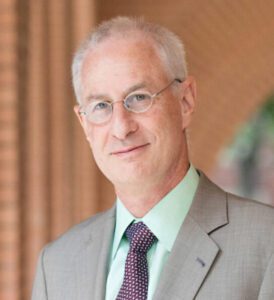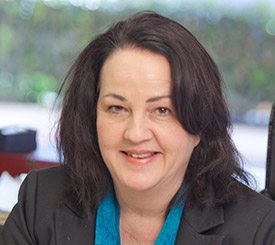
Dean Pinchas Cohen

Senior Associate Dean Maria Henke
Editor’s note: the below excerpt is from a column authored by USC Leonard Davis Dean Pinchas Cohen and Senior Associate Dean Maria Henke. The column appeared in Engage, a publication of LeadingAge California, on March 15, 2021.
COVID-19 – and its disproportionate assault on older adults – has forced gerontologists to face a new normal; one which demands accelerated answers and advocacy around preventing disease, promoting health and well-being, ensuring safety and security, and confronting inequity. The pandemic underscores the need for curricular content and career training that equips practitioners to respond to today’s critical needs, and also empowers them to drive the discoveries and establish the agendas that will prepare us to meet the needs of our rapidly aging population.
Fortunately, gerontology, the study of aging, is a field that has always focused on the future, advancing scientific breakthroughs, policy improvements, product designs and service solutions that enable people to live long, healthy lives. It is also a field that is flexible, embracing emerging technologies as it evolves to meet the changing needs of our aging society. For these reasons and more, gerontology education programs are perhaps uniquely suited to address the challenges that emerged, or were enhanced, because of COVID-19 and to anticipate the areas to focus on in the years ahead.
Here are some of the ways the USC Leonard Davis School of Gerontology is responding to COVID-19, along with opportunities we have identified to make a continued positive impact going forward:
Preventing Disease
Age is the biggest risk factor for severe illness or death from COVID-19, as it is for cancer, cardiovascular and Alzheimer’s disease, diabetes and other leading causes of death. However, research is revealing that we all age at different rates and that this tempo can be slowed with the correct combination of diet, exercise, and other personalized interventions that can keep disease and decline at bay. …





